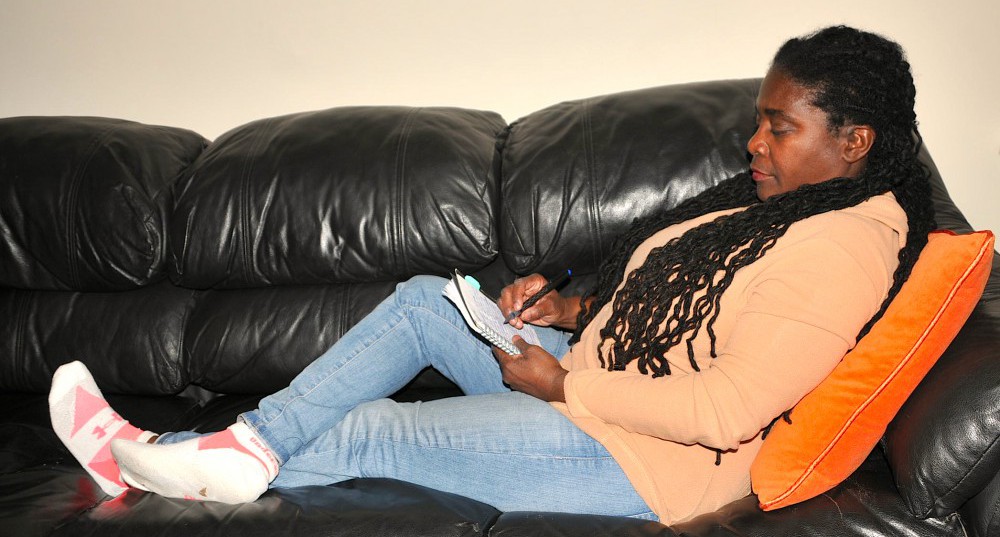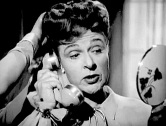“CASS TIMBERLANE” ~ THE HUMANIST JURIST
by The Honorable Michele S. Price
City of Colorado Springs Municipal Court
Posted ~ June 8th, 2016
It’s lonely at the top, as the adage goes – the top of the heap, in the corner office, as the head coach, and yes, even on the courtroom dais. The life of a judge – both professional and personal – is fraught with difficult decisions at every turn. When hearing court matters, we ponder whether the evidence has established guilt beyond a reasonable doubt, and what impact our sentences will have upon a defendant. In our personal lives, judges must guard at all times against the appearance of impropriety, maintaining cordial but necessarily distant relationships with other attorneys and the public. Even in community service, the jurist must be ever vigilant about how lending our time to worthy causes might be perceived. And in love? Well…there, too, our emotions and choices can, will and do impact every corner of our lives. But yet, judges are human, too; or, at least, arguably so.
In one of the few classic films to ever focus upon the life – both professional and personal – of a judge, “Cass Timberlane” stands out as a fully developed representation. Released in 1947 by MGM, and starring Spencer Tracy, Lana Turner and Zachary Scott, the film follows a small town judge through an unexpected romance and its unanticipated consequences. Based upon a novel by Sinclair Lewis, known for his critical and accurate depictions of class structure, and directed by George Sidney, fresh off a success with 1946’s affectionate musical “The Harvey Girls” the film was a relative hit with audiences but received mixed reviews from critics. While Hollywood studios of that time, as now, were in the business of utilizing their most popular stars to create money-making films, MGM here gave viewers a warm and human story based upon more than a May-December romance. “Cass Timberlane” offers a look into the timeless quandries of appearance versus substance, perception compared to reality, and choices made upon impulse that are nevertheless lasting.
Cass Timberlane is a middle-aged judge in a small Minnesota town with unassailable values. He is universally respected within his community, and affiliated with a socially acceptable – for a judge, anyway – “country-club” crowd. Long-widowed, he is in an easy but staid relationship with companion Chris Grau, played with restraint and grace by Margaret Lindsay, a woman a part of and comfortable with Cass’s group. Although we see Cass come alive on the bench addressing a myriad of litigants with wisdom and practicality, his loneliness is also evident: he rattles around in a beautiful but empty house, playing the flute and retreating with books.

Into this world of predictability and decorum comes Virginia “Jinny” Marshland, played by Lana Turner. Young, beautiful, blond, impetuous, creative – and from a diametrically different world – Jinny meets the judge first in the courtroom, where she, out of boredom and not a little spite, draws a caricature of him at work. When it’s discovered after she’s left, and brought to the judge’s attention, instead of anger (or perhaps even a momentary thought of contempt of court), he teasingly “cross-examines” the culprit. Cass is captivated by the winsome Jinny (how could anyone resist the ravishing albeit here understated Turner?) who takes a moment to appreciate the judge’s attempt at humor. Enjoying her rattled response, Cass quips “Judges are often mistaken for human beings.” Ah, but for the actual jurist, therein lies the rub: we are often mistaken for non-humans as well.
In a matter of weeks, Cass is consumed with Jinny and her youthful effervescence. His demeanor grows lighter, his energy  multiplies and his heart opens up to the possibilities of new love. Soon he cannot see a future without her. With his heart laid bare, he proposes marriage: for him, a release from mid-life ennui, but for her, a giant step across age, economic and social boundaries. And marry they do. Once the ubiquitous honeymoon period wanes, the realities of life set in: Cass, invigorated and hopelessly captivated by his radiant young bride, but Jinny bored and spurned by Cass’s oldest “friends.” It is here that Lewis’s scathing commentary upon social mores is most evident, as those persons deemed “acceptable” for a judge’s social community undermine and even
multiplies and his heart opens up to the possibilities of new love. Soon he cannot see a future without her. With his heart laid bare, he proposes marriage: for him, a release from mid-life ennui, but for her, a giant step across age, economic and social boundaries. And marry they do. Once the ubiquitous honeymoon period wanes, the realities of life set in: Cass, invigorated and hopelessly captivated by his radiant young bride, but Jinny bored and spurned by Cass’s oldest “friends.” It is here that Lewis’s scathing commentary upon social mores is most evident, as those persons deemed “acceptable” for a judge’s social community undermine and even
erode the relationship which he deems most important. Indeed, the realities of existing in the transparency of a fishbowl become central to the story and the real-life jurist equivalent: whatever Cass – and we, as judges – do is common and seemingly even expected fodder for the gossip cannon. Our private lives are no such thing and personal relationships, emotions and choices seem to be universally not just interesting but unarguably public domain.
After a pregnancy brings the couple closer, only to result in loss and tragedy, the trajectory of life changes. As the marriage falls apart, Cass becomes a different man, one consumed by jealousy and prone to uncharacteristically angry actions. Jinny pushes further away from him and the strictures of judicial life that bleed over into their domestic one. She ultimately finds, not refuge, but rather escape, in the arms of Cass’s friend, the caddish lawyer Bradd Criley, played by Zachary Scott  in much the same manner as his “Mildred Pierce” (1945) character, Monty Beragon. Offered release from the small-town existence, Jinny eagerly leaves Cass who, now filled with humiliation at the marriage’s failure, has become nearly the opposite of the calm, measured, and thoughtful persona of judge/man he had previously been. When Cass is called upon by some well-heeled friends (John Litel and Albert Dekker) to further compromise his standards of fairness and decency, the story arcs at a breaking point. To survive, Cass must return to who he was – the unsullied jurist of appropriate temperament – while also recognizing that
in much the same manner as his “Mildred Pierce” (1945) character, Monty Beragon. Offered release from the small-town existence, Jinny eagerly leaves Cass who, now filled with humiliation at the marriage’s failure, has become nearly the opposite of the calm, measured, and thoughtful persona of judge/man he had previously been. When Cass is called upon by some well-heeled friends (John Litel and Albert Dekker) to further compromise his standards of fairness and decency, the story arcs at a breaking point. To survive, Cass must return to who he was – the unsullied jurist of appropriate temperament – while also recognizing that 


human-ness and fallibility are a part of life. Ultimately, when illness befalls Jinny, Cass eschews the criticism of others and puts his own hurt and disappointment aside, reconnecting with Jinny and willing his heart to heal and love again.

Spencer Tracy brings poignancy and subtlety to the portrayal of the conflicted judge. He veers from bored and stern to giddy and impulsive. Lana Turner is luminous, her beauty ranging from captivating to cruel, holding her own against Tracy’s powerful and privately tortured Cass. The black and white cinematography, instead of sharpness and contrast, lends softness to images. While many have found the film to be simply a formulaic odd-coupling romance, there is deeper meaning to be found. The roles we take on in society and profession have always been not just defining but personifying: we become what we do. For a judge, this can be particularly true. The jurist never knows who is watching and “judging” us, not just in the courtroom, but at the theater, in a store, when overheard on the telephone. When is there a time – or is there ever one – that we are not actually or figuratively clothed in the black robe, the symbol of authority, integrity and wisdom? Are our emotions and actions as a result thereof to be always muted, privately expressed or hidden? While a jurist, at his or her best, is a humanist – concerned for human welfare, values and dignity – when are we allowed to simply be just human?
These are the questions into which “Cass Timberlane” delves. To see Cass – the judge, reveal Cass – the person, is a beautiful, if painful, thing to watch. The movie succeeds on a more profound level than just a look at an unlikely marriage between two different people. Instead, it reveals the human search for connection, affection and meaning, which, not uncommonly, also co-exist with the realities of jealousy, rejection and loss. For those who have ascended to “the top” of the legal profession as judges, it can be and often is, indeed, lonely. “Cass Timberlane”, however, allows that even judges are people too…with the same human frailties, faults and foibles as everyone else.
[ GUEST ESSAY BIO ]





This is a wonderful post. Thoughtfully reasoned and well written. I will be thinking of this piece the next time I watch Cass Timberlaine.
LikeLiked by 1 person
Hello Stephen. Thanks so much for reading Michele’s essay. I think next time I see “Cass Timberlaine” I will be more gentle with it in view of this wonderful piece Michele has written. Thank you for your comment.
LikeLike
Thanks so much for reading & reflecting!
LikeLiked by 1 person
Great job Michele! I wasn’t familiar with this film but I’ll definitely watch out for it now. Great meeting you at the festival! I had no idea you were a judge!
LikeLiked by 1 person
Thank YOU Jeff for your positive comments & stellar examples of the best writing! &…you won’t hold my profession against me will you???
LikeLiked by 1 person
Our world is filled with so much righteous judgment and gossip that it is overwhelming. To be the object of such scrutiny on any level is demeaning to the soul. It is a painful topic in a treasure of a film and a most thought-provoking article.
LikeLiked by 1 person
Thoughtful comments! Indeed often one exists in a fishbowl but truly the sense of public stewardship remains tremendously rewarding after 17 years on the job.
LikeLiked by 2 people
This is a beautiful piece and it was a pleasure to read. While I am frequently aware that I am speaking as a social worker and representative of my school district, my awareness is nothing at the level that you describe. I am reminded some of Pastor’s and the struggles too of their wives, so often judged harshly. I have never seen this film and very much look forward to it. Tracy is almost always wonderful and when is Lana not luminous?
LikeLiked by 1 person
Well done, Michele, and you make a case for this movie that I never bothered to think through. I agree that it’s got something beyond the May/December thing and even beyond the evil-country-club-set thing—thanks so much for contributing to the blogathon.
LikeLiked by 1 person
This sounds like a thought-provoking film, one I know I’d enjoy. There are folks in society who seem to be judged more harshly than others, and your review will help me to keep that in mind.
Thanks for the introduction to this film! 🙂
LikeLiked by 1 person
I saw this movie years ago when I was much younger. After your review, I want to see it again now that I am “ahem” older!! Enjoyed your look at it a lot!
LikeLiked by 1 person